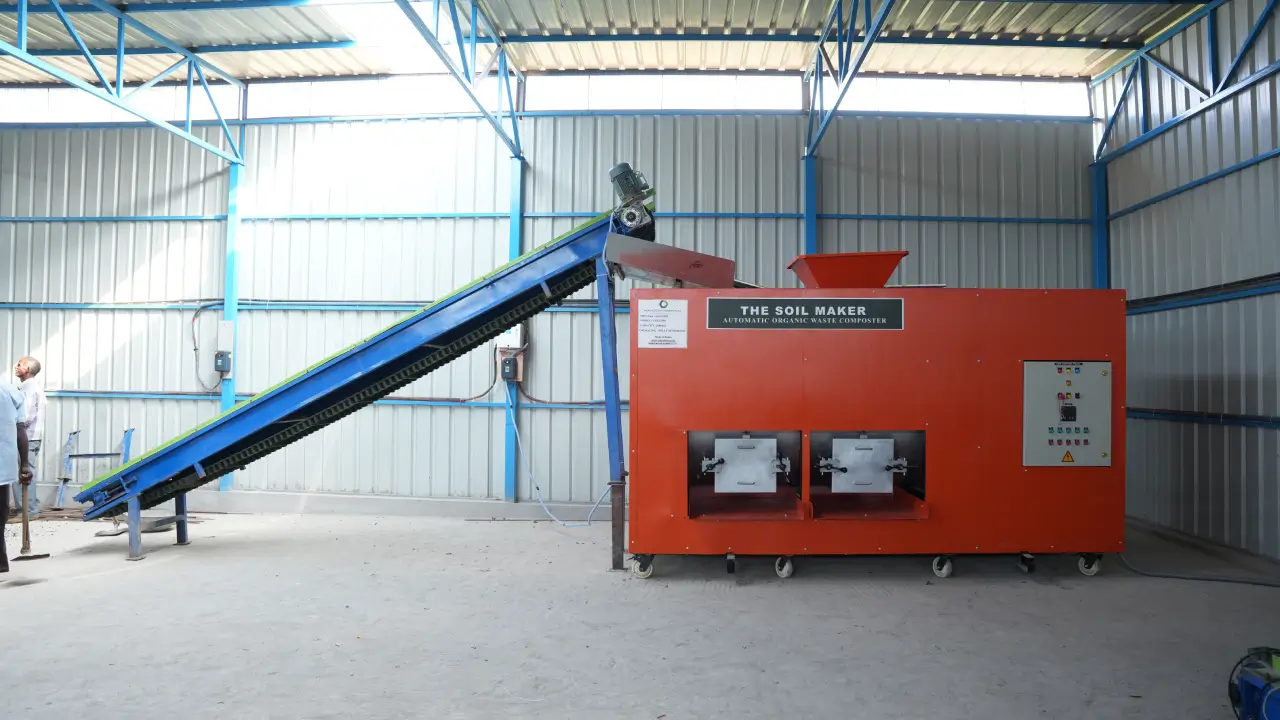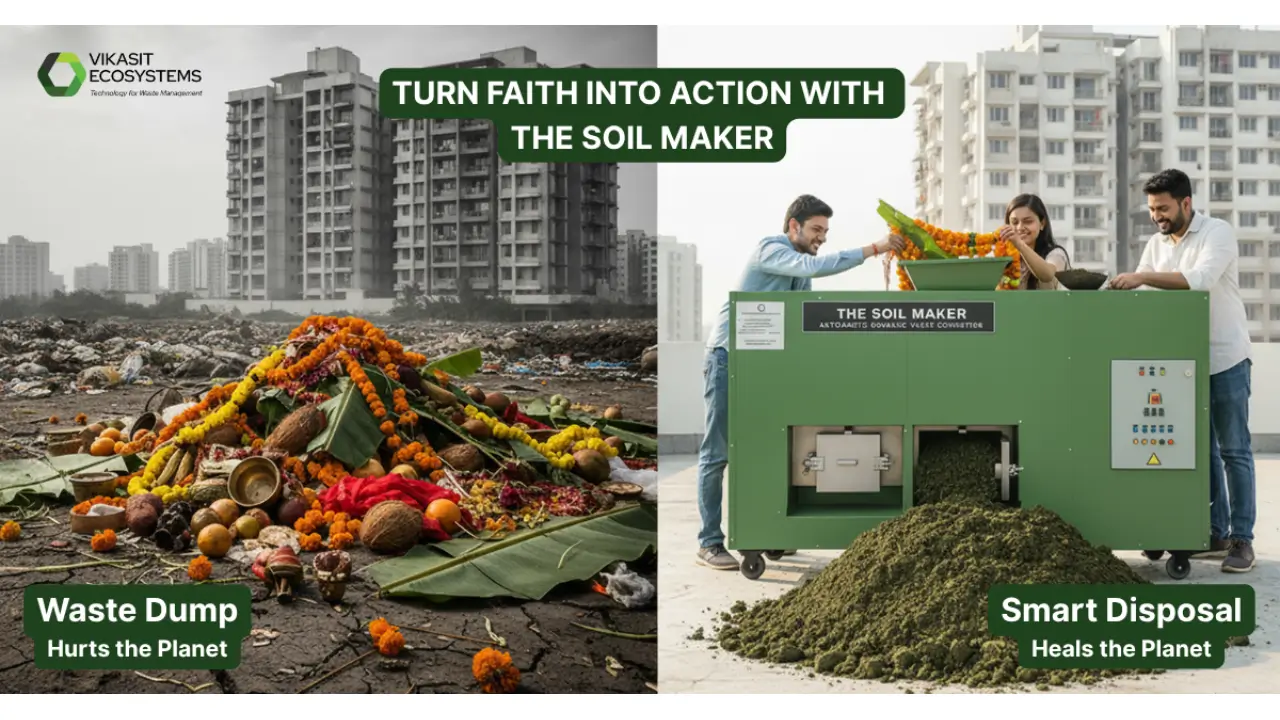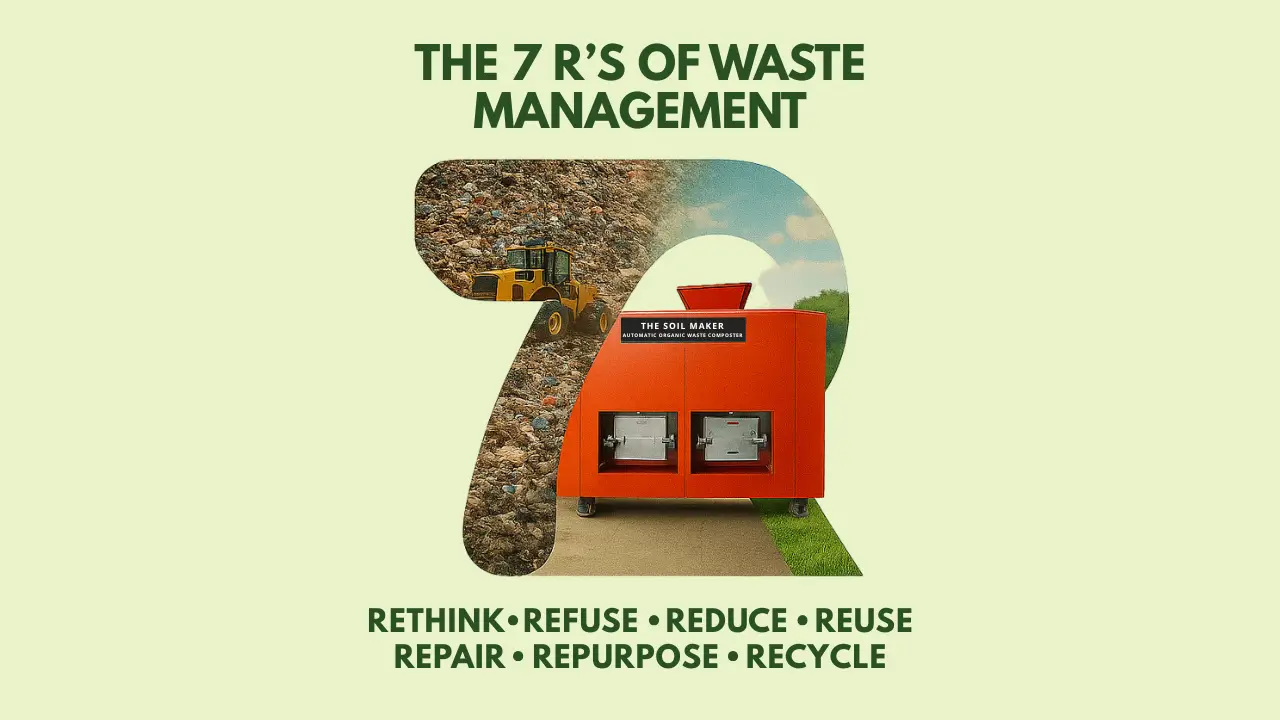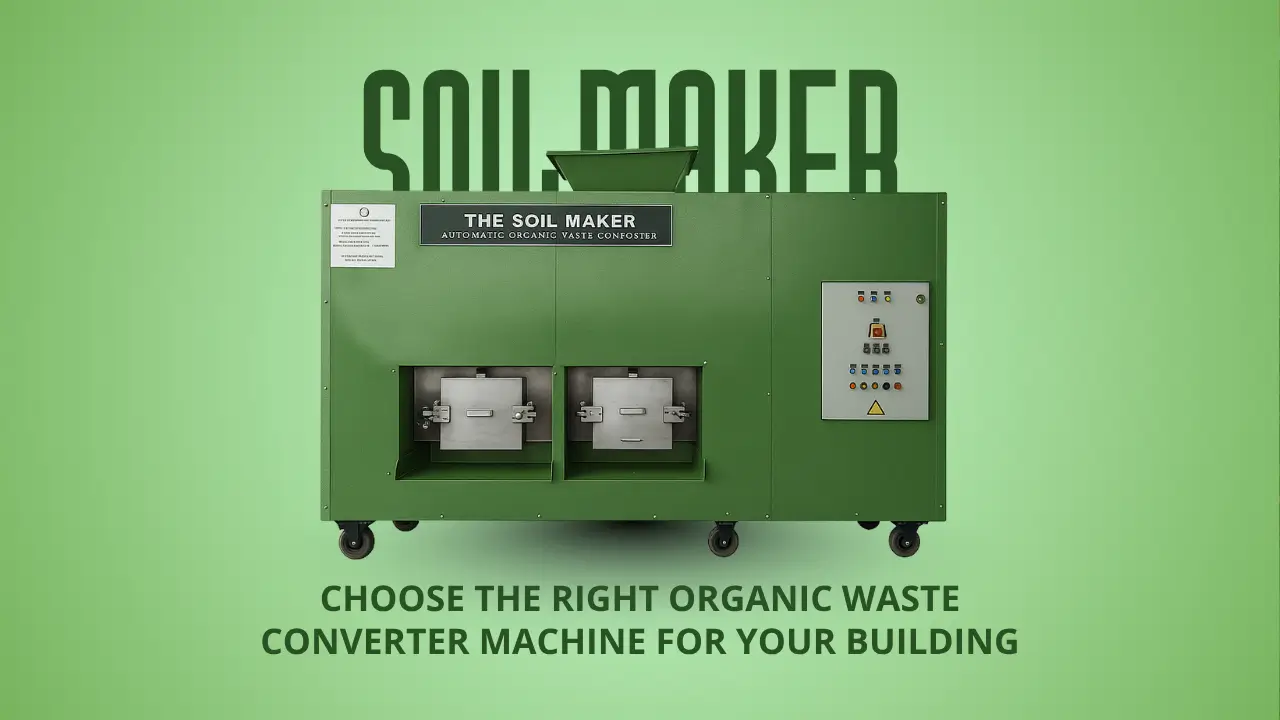In a world increasingly burdened by the harmful effects of waste, the machines like Vikasit Ecosystems’ Soil Maker organic waste converter has emerged as a game-changing solution for sustainable living. With urbanization on the rise and landfill spaces shrinking, managing organic waste responsibly is no longer optional—it’s essential. This blog delves into how an organic waste converter works, its benefits, and why it’s becoming a crucial part of the modern waste management ecosystem.
What is an Organic Waste Converter?
An organic waste converter (OWC) is a machine designed to decompose and process organic or biodegradable waste into compost. This includes food scraps, garden clippings, leaves, and other natural materials. The device speeds up the natural composting process using a combination of heat, moisture, airflow, and microbial activity.
Instead of sending your kitchen and garden waste to landfills—where it emits methane, a potent greenhouse gas—you can convert it into nutrient-rich compost for gardening or landscaping.
Why is Organic Waste a Problem?
Organic waste makes up more than 50% of total municipal solid waste in many cities. When dumped in landfills, it breaks down anaerobically (without oxygen), releasing methane and other harmful gases. This contributes heavily to climate change and leads to various environmental and health problems.
Traditional waste disposal systems are inefficient, expensive, and environmentally damaging. That’s where the organic waste converter proves its worth.
How Does an Organic Waste Converter Work?
An Organic Waste Converter (OWC Machine) is designed to transform biodegradable waste into nutrient-rich compost through a quick and efficient process. Most systems operate in three key stages:
1. Segregation
The first and most important step is waste segregation. Organic waste such as food scraps, vegetable peels, and garden waste is collected separately from plastics, metals, and other non-biodegradable materials. Proper segregation ensures smooth processing and high-quality compost output.
2. Processing
Once collected, the organic waste is shredded into smaller particles to speed up decomposition. Beneficial microorganisms or culture agents are added, and the machine provides the right balance of heat, aeration, and moisture control. This creates an ideal environment for rapid microbial activity.
3. Composting
Within 3~4 hours in advanced OWC systems, the processed waste is converted into odor-free, organic compost. This compost is rich in nutrients and can be used for gardening, landscaping, agriculture, and horticulture.
Our flagship Soil Maker organic waste converters are fully automatic, odor-free, and consume minimal electricity, uses advanced microbial technology and aeration to convert waste into compost in just 3–4 hours—faster than traditional systems. Making them suitable for use in residential societies, hotels, restaurants, schools, and industries. By adopting our OWC machine, communities and organizations can reduce landfill waste, cut disposal costs, and produce eco-friendly compost for sustainable use.
Benefits of Using an Organic Waste Converter
Using an organic waste converter offers numerous benefits across environmental, economic, and social dimensions:
1. Environmental Impact
- Reduces landfill burden
- Cuts down methane emissions
- Minimizes soil and water contamination
2. Produces Valuable Compost
- Enhances soil health
- Reduces the need for chemical fertilizers
- Supports organic farming
3. Economic Savings
- Reduces municipal waste disposal costs
- Generates compost that can be sold or reused
- Offers long-term return on investment
- With Soil Maker OWC, many of our clients have reduced waste disposal costs by over 40%.
4. Institutional Value
- Boosts CSR initiatives for corporates
- Helps achieve sustainability certifications (e.g., LEED, IGBC)
- Enhances brand reputation and public image
Who Should Use an Organic Waste Converter?
An organic waste converter is ideal for:
- Residential apartments and gated communities
- Restaurants, cafes, and hotels
- Hospitals and schools
- Corporates and tech parks
- Municipal corporations and local governments
By investing in a reliable organic waste converter, these entities can significantly reduce their carbon footprint while contributing to a cleaner, greener future.
Key Features to Look for in an Organic Waste Converter
When choosing the right organic waste converter, consider these features:
- Capacity: Based on the amount of waste generated daily
- Automation: Manual vs. semi-automatic vs. fully automatic
- Odor Control: Proper ventilation and microbial action
- Time Efficiency: Compost generation time
- Energy Efficiency: Power consumption and operational costs
- Certifications: Quality and safety standards compliance
Some of our top models OWC also come with IoT integration, enabling real-time monitoring and data tracking.
Soil Maker Organic Waste Converter Features
| Features | Details |
| Odor Managements | Equipped with foul smell control mechanisms for odourless operation. |
| Heating Mechanism | No heating mechanism or hot pads included, ensuring energy efficiency. |
| Regulatory Compliance | Fully compliant with SWM 2016, NGT guidelines and Pollution Control Board standards. |
| Moisture Regulation | Integrated moisture control systems for optimized compost quality. |
| Auto Climate Control | Advanced auto climate control maintains consistent internal conditions. |
| Leachate Management | Robust leachate control systems prevent leachate production and reduce environmental impact. |
| Processing Efficiency | 3 – 4 hours per batch, ensuring high throughput. |
| Temperature Regulation | Maximum internal temperature maintained at 40°C. |
| Safety Features | Comprehensive safety controls for operator and equipment protection. |
Organic Waste Converter and Government Regulations
Many municipal authorities in India and around the world have begun enforcing waste segregation at source. Several cities have mandated large bulk waste generators to install OWC to manage their biodegradable waste on-site. These measures are aimed at reducing dependency on central landfills and promoting decentralized waste management.
By proactively adopting an OWC, organizations not only comply with the law but also play a vital role in environmental stewardship.
Challenges in Adoption and How to Overcome Them
Despite the numerous benefits, adoption of organic waste converters faces certain challenges:
- Initial cost and ROI concerns
- Lack of awareness or training
- Space constraints in urban setups
- Improper segregation at source
These can be overcome through government incentives, awareness programs, and turnkey waste management solutions offered by experienced vendors.
The Future of Waste is Circular
As cities become smarter and more sustainable, organic waste converters will play a central role in transforming waste into a valuable resource. Composting is no longer just a backyard hobby—it’s a scalable, impactful solution to one of urbanization’s biggest problems.
The transition to a circular economy begins with responsible waste management—and an organic waste converter is a perfect first step.
Conclusion
An organic waste converter is not just a machine; it’s a movement toward sustainability. By turning waste into wealth, it helps build greener cities, improves soil health, and mitigates climate change. Whether you’re a resident, a business owner, or a policymaker, integrating this technology into your waste management plan is a wise and responsible choice.
So, are you ready to make the shift? Explore the Soil Maker Organic Waste Converter by Vikasit Ecosystems and join hundreds of communities already turning waste into wealth. Get in touch now:
Call: +91 96065 96849
Email: shrini@vikasiteco.com
FAQ
What types of waste can go into an organic waste converter?
Organic waste such as vegetable peels, cooked food, fruit waste, coffee grounds, garden leaves, and biodegradable kitchen waste.
How long does it take to produce compost?
Advanced OWCs can generate compost in 4 to 8 hours depending on the machine and the type of waste.
Is the compost safe to use in gardening?
Yes. The compost produced is rich in nutrients and safe for home, community, or commercial gardening.
Does the machine smell?
High-quality OWCs come with proper odor control mechanisms and microbial solutions to eliminate bad smell.
How much space does an OWC need?
This depends on the model and capacity, but compact systems are available that suit apartment basements or rooftops.
Can it be installed in residential apartments?
Absolutely. Many societies in India have already installed compact, automated OWCs for on-site waste composting.

Written by the Sustainability Research Team at Vikasit Ecosystems – pioneers in decentralized organic waste management and creators of The Soil Maker. Follow us for updates on green innovations, circular economy, and urban resilience.





